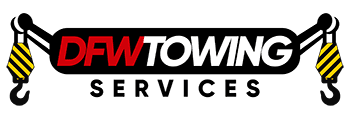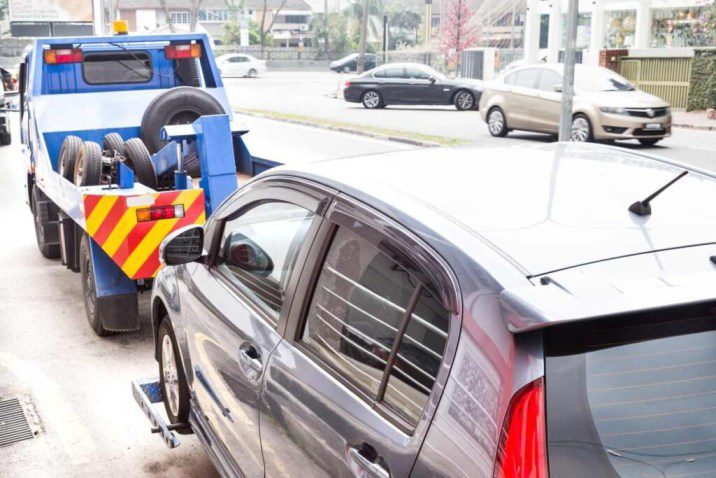Towing a Car Safely: Best Practices and Essential Tips
Safely towing a car is crucial to prevent accidents and ensure a smooth journey. Whether planning a long-distance trip or needing emergency car recovery, following best practices is essential. An excellent towing company prioritizes your safety and offers various options, from flatbed towing to medium truck towing. In this blog, we’ll cover everything you need to know about towing a car safely, including essential equipment, driving tips, legal considerations, and post-towing inspection. Let’s dive in!
The Basics of Towing A Car
Towing a car is moving it from one spot to another using a different vehicle. Depending on your need, you can do this with a tow dolly or a trailer. People usually need towing services for various reasons, like moving to a new place, when their car breaks down, or when they must take their vehicles for fixing. So, if you ever need towing assistance, remember that we are here to help with reliable towing services for car towing in Dallas, TX, and more. Just give us a call, and we’ll be there for you!
Essential Equipment for Towing:
When you’re towing a car, you’ll need some vital equipment to do it safely. Here’s a simple list of what you’ll need:
- Tow Hitch: This special attachment on your vehicle connects it to the car you’re towing.
- Trailer Ball: A ball-shaped attachment goes on the hitch and links to the trailer you’re towing.
- Safety Chains: These chains provide extra security if the primary connection fails.
- Brake Controller (if needed): If the trailer has brakes, this device helps synchronize them with your vehicle’s brakes.
- Towing Mirrors: These mirrors stick out further to help you see better around the trailer.
- Trailer Wiring Harness: It connects the lights on the trailer to your vehicle’s lights.
- Trailer Brakes (if required): Some trailers need brakes for added safety.
- Safety Equipment: Keep a fire extinguisher, reflective triangles, and a first aid kit handy in case of emergencies.
- Check Towing Capacity: Make sure your vehicle can safely tow the car’s or trailer’s weight.
- Properly Inflated Tires: Keep all tires inflated to the recommended pressure.
Remember, towing a car requires attention to safety, so use the right equipment, follow guidelines, and maintain your vehicle and trailer properly.
Preparing the Vehicles for Towing:
When you’re getting ready for towing a car, follow these simple steps to make sure everything goes smoothly:
- Check Your Vehicle: Before towing a car, inspect your vehicle for any issues like leaks or problems with the engine, brakes, tires, and lights.
- Know Your Car’s Limits: Find out how much weight your car can safely tow. Stay within this limit to avoid problems.
- Use the Right Hitch: Choose the correct hitch for your car and the car you’re towing. It ensures a secure connection.
- Connect Safely: Attach the hitch properly to your car, and remember to use safety chains to add extra protection.
- Inspect the Car Being Towed: Before towing, look over the car you’re towing. Check for damages, ensure the tires are okay, and test the brakes and lights.
- Plug in the Lights: Connect the wiring harness between your car and the towed car to ensure the lights work.
- Check Visibility: If the towed car blocks your view, use extended mirrors to see better.
- Secure Everything: Inside the towed car or trailer, make sure everything is fixed in place and won’t move around during towing.
- Adjust Tire Pressure: Check and adjust the tire pressure of both your car and the towed car.
- Test the Brakes: If the towed car has brakes, test them before hitting the road.
- Practice First: If you’re new to towing, practice in an empty space to get used to it.
- Balance the Weight: Distribute the weight properly in the trailer or towed car to keep it stable.
Following these steps when towing a car can give you a safe and successful towing experience.
Safety Tips for Towing a Car:
When you’re towing a car, safety is crucial. Here are some simple tips to keep in mind:
- Know Your Limits: Make sure your vehicle can handle towing a car safely without overloading it.
- Use the Right Equipment: Use the correct hitch or tow bar for your towing setup, and ensure all connections are secure.
- Check Laws and Regulations: Know the towing rules in your area, including speed limits and safety requirements.
- Inspect Both Vehicles: Before towing, check both vehicles for any issues with brakes, tires, and lights.
- Load Properly: Distribute the weight evenly in the car being towed and secure everything inside.
- Use Safety Chains: Always attach safety chains correctly as an extra safety measure.
- Test Trailer Brakes (if applicable): If the car being towed has brakes, check them before starting your journey.
- Improve Visibility: Install towing mirrors to see better around the towed car.
- Signal Clearly: Let other drivers know your intentions with clear signals.
- Drive Defensively: Allow more distance for braking and drive slower when towing.
- Be Careful on Hills: Use lower gears for uphill and downhill towing.
- Check Tire Pressure: Monitor tire pressure regularly for both vehicles.
- Avoid Sudden Moves: Steer gently and avoid abrupt lane changes or turns.
- Take Breaks: Rest during long trips to stay alert.
- Inspect Periodically: Stop and check your towing setup during long journeys.
Following these tips helps ensure a safe and smooth towing experience. Always prioritize safety when towing a car.
Legal and Regulatory Considerations:
When towing a car, it’s important to consider legal and safety aspects. Here are some simple points to remember:
- Know Your Vehicle’s Limit: Check how much weight your car can safely tow to avoid problems.
- Follow Towing Regulations: Be aware of laws regarding towing a car, including speed limits and required safety equipment.
- Use Proper Equipment: Use the right hitch and safety gear for towing a car securely.
- Check Lights and Brakes: Ensure all lights work, and if the car being towed has brakes, test them beforehand.
- Obey Weight Restrictions: Respect maximum weight limits for towing a car, especially on bridges and certain roads.
- Stay Informed About Permits: You may need special permits for large loads.
- Secure the Load: Distribute weight evenly in the trailer or towed car for safety.
- Park and Stop Wisely: Understand where to park and stop when towing a car.
- Check Insurance Coverage: Confirm that your insurance covers towing a car.
- Keep Vehicles Roadworthy: The towing vehicle and the car being towed should be in good condition.
By being aware of these legal and safety considerations while towing a car, you can have a smooth and trouble-free experience. Always prioritize safety and follow the rules when towing a car.
Tips for Towing Long Distances:
Long distance towing demands extra precautions to ensure a smooth journey. Check your vehicle’s engine, brakes, and tires before hitting the road. Keep an eye on the weather forecast and road conditions along your route to be prepared for any challenges. Staying well-rested and alert is crucial for safe towing during long trips.
Plan for regular rest stops to avoid driver fatigue. During these breaks, inspect the towing vehicle for issues like overheating or tire pressure. Additionally, check the securement of the towed vehicle to ensure it remains stable throughout the journey. Being proactive and attentive will help make long-distance towing a stress-free experience for car towing in Dallas Tx.
After Towing: Unloading and Post-Towing Inspection
Safely Unloading the Towed Vehicle:
Once you’ve reached your destination, follow these simple steps to unload the towed vehicle safely. Park the towing vehicle on level ground, engage the parking brake, and use wheel chocks. Gently release any securing devices, such as straps or chains, and carefully reverse the loading process. It ensures a smooth and risk-free unloading process for towing a car.
Conducting Post-Towing Inspection:
After towing a car, it’s essential to inspect both vehicles for any signs of damage. Look for scratches, dents, or loose parts that may have occurred during the towing journey. Identifying and addressing these issues promptly can prevent further complications and keep your vehicles in top-notch condition.
Takeaway
Towing a car safely is about preparation, caution, and adherence to best practices. DFW Towing Services is committed to providing top-notch services, whether you need an emergency jump start, flat bed towing, local towing, or car towing. Remember these essential tips for a secure towing experience, and drive with confidence!
For professional towing services in Dallas, TX, contact DFW Towing Services at 469-208-4200.

